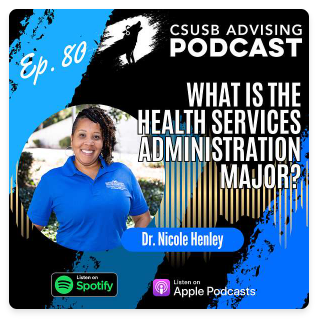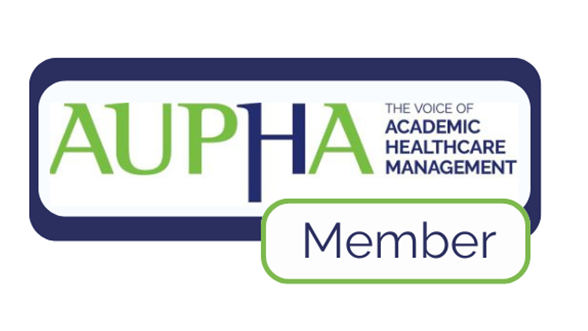
Welcome to the B.S. Degree in Health Services Administration!
Our program is specifically designed to equip a diverse student body with the necessary skills and knowledge to excel in management roles within public, not-for-profit, and private healthcare settings. We aim to enhance the quality and innovation in delivering healthcare services for all individuals.
Upon completion of this program, our graduates acquire valuable work-related experiences and possess the following attributes:
- Proficiency in Health Services Administration Competencies: Our curriculum covers essential areas such as marketing, finance, human resources, and other related functions. Students gain a comprehensive understanding of operations, information systems, statistical analysis, and quality improvement, ensuring they are well-prepared to navigate the complexities of the field.
- Readiness for Professional Engagement or Graduate Studies: Our program is designed to empower graduates to enter the healthcare profession with confidence or pursue advanced studies in the field. We provide a solid foundation that prepares individuals for the challenges and opportunities they may encounter throughout their careers.
BSHSA program aligns with the certification standards set forth by the Association of University Programs in Health Administration (AUPHA).
We are excited to have you join our program and embark on this transformative journey in the dynamic field of Health Services Administration. Our faculty and staff are dedicated to supporting your academic and professional growth.
Once again, welcome to the B.S. Degree in Health Services Administration!
Best regards,
Program Coordinator: Dr. Nicole Henley, PhD, MBA
Email: nicole.henley@csusb.edu
Mission
The mission of the Health Services Administration (HSA) program is to prepare our graduates as competent entry-level health care managers to enhance quality in service provision in health care delivery systems with skills to work in public, not-for-profit, and private health care settings including hospitals, clinics, and medical groups. Graduates are prepared in health services administration subject matter including policy formulation, finance, administrative functions, roles of medical staff, federal and state regulation, planning and marketing, human resources and other health care functions.
HSA student are, for the most part, representative of students throughout the university; they are typically first-generation college students from a wide variety of racial and cultural backgrounds. They are interested in health care generally, and more specifically in various aspects of management within health-related programs and organizations, with the goal of enhancing the quality and innovation in the delivery of health care services for all individuals.
Vision
The vision of the health services administration program is to be recognized in the Inland Empire as a leader in the profession through our outstanding graduates, scholarly activities, and service to the community.
Our core values serve as a guide in the work we do, while in pursuit of effectiveness and excellence in the work of health services administration. We recognize the importance of:
Diversity
A respect for all people in global and local communities and to appreciate diverse cultures’ perspectives and beliefs, as we promote equal access to health care and reduction of health disparities and health inequities.
Equity
Fairness and social justice in addressing population health an access to health care.
Interdisciplinary Collaboration
Using a systems thinking framework and reasoned debate in collaborative approaches across disciplines to advance scientific knowledge, and improve health outcomes and quality of life for all individuals.
Student Centered Learning
A safe and comfortable learning environment that fosters engaged learning where multicultural students have a voice in the process of their education including practical opportunities for problem solving, interaction, and feedback.
Advocacy
Actions to achieve equitable distribution of resources as it relates to health care, public health, and health policy.
Innovation
Innovative approaches to educate and inspire faculty and students in teaching, learning, and addressing matters related to the health care delivery system.
Professionalism
Honesty and mutual respect in teaching, learning, and public service as we engage students in activities to advance a sense of the profession as they assume duties and responsibilities in health care related careers.
Scholarship
Engagement by faculty and students in scholarly activities relevant to health policy issues in the management of health services.
The B.S. Degree in Health Services Administration is designed to prepare a diverse-student body for management roles in public, not-for-profit, and private health care settings, to enhance the quality and innovation in the delivery of health care services for all individuals.
Graduates from this program gain relevant work-related experiences and are: 1) trained in health services administration competencies including marketing, finance, human resources, and other related functions, with a working knowledge of operations, information systems, statistical analysis, and quality improvement, and 2) prepared to enter the profession or a graduate program. This program aligns with certification standards of the Association of University Programs in Health Administration (AUPHA).
Program goals and objectives are established in support of our mission, vision and values in the areas of instruction, scholarly activities, and service.
Instructional Goal: Offer a high quality educational program
Objectives:
1. Design, implement, and evaluate a competency and practice-based program.
2. Foster the success of our students.
3. Educate and train competent health services administration professionals to improve health care delivery in a variety of health care organizations in the Inland Empire and beyond.
Research Goal: Prepare students to design, understand, and manage health sciences research based on an understanding of health equity and access to health care services.
Objectives:
1. Promote ethical research in the areas of health services and public health.
2. Encourage and support interdisciplinary research among faculty who can translate
findings to teaching.
3. Prepare graduates to be effective health services administration professionals who are able to interpret and report research findings related to improving health care quality and outcomes.
Service Goal: Promote community engagement in the advancement of health equity and quality health care services in the Inland Empire and beyond.
Objectives:
1. Offer experiences that encourage community engagement with a focus on access to quality health care services in the Inland Empire and beyond.
Health Science Core Courses
(Must earn grades of 'C' (2.0) or better in all upper-division coursework with an HSCI prefix or any course approved for upper-division Health Science substitutions required in the major.)
Program Requirements (65 units)
Total units required for graduation: 120 units
| Course | Title | Units |
|---|---|---|
| ACCT 2110 | Introductory Accounting I | 3 |
| ECON 2201 | Principles of Microeconomics | 3 |
| HSCI 1200 | Health and Society: An Ecological and Societal Approach | 3 |
| HSCI 1200L | Health and Society: An Ecological and Societal Approach Lab | 1 |
| HSCI 2202 | Software Applications in the Health Sciences | 3 |
| HSCI 2203 | Introduction to Statistics in Health Sciences | 3 |
| HSCI 3040 | Introduction to Health Services Administration | 3 |
| HSCI 3060 | Medical Care Organizations | 3 |
| HSCI 3080 | Operations Management | 3 |
| HSCI 3205 | Biostatistics for Health Science | 3 |
| HSCI 4036 | Human Resources Management in Health Care | 3 |
| HSCI 4037 | Information Systems & Financial Management in Health Care | 3 |
| HSCI 4055 | Health Policy, Law, and Ethics | 3 |
| HSCI 4060 | Strategic Planning and Marketing in the Health Care System | 3 |
| HSCI 4068 | Research Methodology in Health Science | 3 |
| HSCI 4080 | Leadership in Health Services Administration | 3 |
| HSCI 4089 | Field Experience Preparation | 1 |
| HSCI 4095 | Field Experience in Health Services Administration | 3 |
| HSCI 4202 | Epidemiology | 3 |
| HSCI 4210 | Cultural Competency | 3 |
| MGMT 3020 | Organizational Behavior | 3 |
Electives (6) Six units chosen from: | Title | Units |
|---|---|---|
| ECON 3314 | Public Economics | 3 |
| HSCI 3052 | Principles of Environmental Health | 3 |
| HSCI 3067 | Human Diseases and Disorders | 3 |
| HSCI 3203 | Global Health | 3 |
| HSCI 3207 | Social Determinants of Health | 3 |
| HSCI 3556 | Housing, Institutions, and Land Use | 3 |
| HSCI 4023 | Health and Wellness of Older Adults | 3 |
| HSCI 4052 | Special Topics in Health Services Administration | 3 |
| HSCI 4200 | Health Administration | 3 |
| HSCI 5010 | Hospital Administration | 3 |
| HSCI 5013 | Managed Care Systems | 3 |
| HSCI 5951 | Independent Study | 3 |
| HSCI 5952 | Independent Study | 3 |
| HSCI 5953 | Independent Study | 3 |
HSCI 4095 Field Experience
Undergraduate Student Field Experience Requirements
Students in Health Services Administration in the Department of Health Science and Human Ecology are required to complete a field experience. The field experience is intended to provide a supervised application of content and theory basic to health education and health care.
Health services organization and delivery, general managerial and leadership skills, and other health service management skills are common themes in the department's health care management program.
A minimum of 135 hours of health services administration structured, practical and guided experience which takes place in an appropriate health care setting is required under the direct supervision of a preceptor at the site. Settings may include hospitals, managed care organizations, government agencies, health departments, community organizations, advocacy programs or other related health settings. The entire field experience process takes two semesters beginning with the field experience search process which takes place during HSCI 4089 Field Preparation, experiencing the field placement in HSCI 4095.
Students must receive approval from their faculty advisor in order to enroll in HSCI 4089. A letter of approval signed by the site preceptor and faculty advisor to be filed in the department prior to beginning the field experience. This course receives a grade of credit/no credit.
The Goal of the Field Experience
The field experience is intended to provide an applied practical experience where students have an opportunity to integrate knowledge, skill, and experience.
The purpose of the field experience is to:
- Provide an opportunity to work with health care professionals on a meaningful project related to health services administration.
- Integrate classroom material with planned, supervised, and practical work experience.
- Provide an experience that exposes students to employment opportunities and health specializations.
- Provide opportunities for leadership in health settings.
- Provide an opportunity for students to apply competencies..
Ultimately, the field experience further contributes to helping CSUSB meet its goal to strengthen its ties with the community by contributing to the betterment of health of the population living in the vicinity of the University.
Field Experience Objectives
During the field experience the student will be able:
- To apply competencies and knowledge gained throughout the HSCI experience.
- To obtain first hand experience in a health care setting.
- To apply knowledge and skills acquired throughout the HSCI curriculum.
- To demonstrate a concern for health, human rights and dignity in the context of community health.
- To analyze and explain the organizational structure of the host organization, including its mission, goals, values, constituencies, funding, impact on clients and other constituencies, relationship with the community and effect(s) on oneself.
- To discuss human rights and ethical principles to be followed when working with community organizations.
- To demonstrate problem-solving skills.
- To demonstrate skills to work effectively across diverse sub-groups and cultures.
- To demonstrate skills to work effectively as a member of an interdisciplinary team.
- To demonstrate leadership skills.
- To demonstrate the ability to formulate an idea from conception to completion of a project.
- To explain the role of politics in the work environment.
- To demonstrate the ability to navigate effectively among various constituencies and agendas in order to accomplish the stated objectives.
Field Experience Benefits
Health Science field experience has three beneficiaries:
- Students: apply health care knowledge taught in class into practice inside the community and learn from the actual experience in the real world of health care.
- Community: working with a preceptor to improve the health of the community through services provided by the future health cadres.
- Institution: foster closer relationship between the Department of Health Science, the faculty, the site of internship, students and the community.
Students are required to:
- Determine a project based upon the organization's needs, work, or mission;
- Develop a field plan or scope of work based upon the above;
Types of Field Experience
Each student and assignment is individually determined. Each relationship between the student and the preceptor is unique. Flexibility is important. Students and projects vary as to required supervision. One student may have a major project within one department of the organization while another student may have several smaller projects from a variety of organizational sub-units. Some placements are predetermined and require the student to fit into the specified conditions. Other placements are flexible and built around the students' specific skills and interests. The work should be flexible enough that the student can be exposed to a variety of meetings and decision-making at all levels of the organization. The diversity of student background permits a variety of projects in which students can participate.
Preceptor Responsibilities (overall responsibilities include but are not limited to):
- Assist the student in developing project objectives to be achieved during the internship.
- Orient the student to the staff, organization (including the dress code), and the community the organization serves.
- Plan with the student specific activities as well as their role, responsibilities, and supervision during the internship.
- Inform the student of required training, background check, fingerprinting or other necessary preliminary requirements.
- Determine with the student the dates of the internship, daily attendance, and hours of attendance.
- Share with the student other learning opportunities that might exist in the organization.
- Orient the organization's staff to the student's project objectives.
- Approve and sign the student's internship project plan and letter of agreement prior to the onset of the student's activities with the organization.
- Complete and review a performance evaluation with the student at the end of the internship.
- Sign the bi-weekly log indicating hours and completed Department Information.
A degree in Health Services Administration opens up a wide range of career opportunities in various healthcare settings. Here is a list of potential career paths for graduates:
- Healthcare Administrator/Manager: Oversee and manage the operations of healthcare facilities, such as hospitals, clinics, nursing homes, or medical practices.
- Healthcare Consultant: Provide expert advice and recommendations to healthcare organizations on operational efficiency, strategic planning, financial management, or regulatory compliance.
- Health Policy Analyst: Analyze healthcare policies, regulations, and legislation to assess their impact on healthcare organizations and develop strategies for compliance and improvement.
- Health Information Manager: Manage health information systems, ensuring accurate and secure data storage, retrieval, and analysis to support decision-making and regulatory requirements.
- Quality Improvement Coordinator: Develop and implement quality improvement initiatives to enhance patient outcomes, reduce errors, and optimize healthcare processes within organizations.
- Medical Practice Manager: Oversee the day-to-day operations of a medical practice, including staffing, financial management, patient satisfaction, and compliance with healthcare regulations.
- Health Services Researcher: Conduct research studies to evaluate healthcare delivery models, assess healthcare outcomes, and contribute to evidence-based decision-making.
- Health Program Coordinator: Plan, implement, and evaluate healthcare programs and initiatives focused on specific populations or health issues, such as disease prevention or community health promotion.
- Health Services Administrator in Government Agencies: Work in various government health departments or agencies, managing programs, budgets, and policies related to public health and healthcare services.
- Healthcare Project Manager: Lead and manage projects focused on improving healthcare processes, implementing new systems, or achieving organizational goals within healthcare settings.
- Health Insurance Manager: Oversee health insurance operations, including claims processing, customer service, and policy administration, within insurance companies or managed care organizations.
- Healthcare Financial Analyst: Analyze financial data, prepare budgets, and provide financial insights to healthcare organizations to support decision-making and financial planning.
- Healthcare Marketing and Communications Manager: Develop and implement marketing strategies to promote healthcare services, enhance brand awareness, and engage with patients and stakeholders.
- Long-Term Care Administrator: Manage and coordinate the operations of long-term care facilities, such as assisted living centers or nursing homes, ensuring quality care and regulatory compliance.
- Healthcare Compliance Officer: Ensure healthcare organizations adhere to legal and regulatory requirements by developing compliance programs, conducting audits, and providing staff training.
These are just a few examples of the diverse career opportunities available in Health Services Administration. The field continues to evolve, offering new roles and challenges as the healthcare industry adapts to changing needs and advancements.
BSHSA program overview

Alumni Spotlight

From left: Dr. Appannagari “Dev” GnanaDev (Distinguished Alumni Award), Mirna Orihuela (Emerging Leader Award) and Roderick M. “Rod” Hendry (Coyote Spirit Award) are among the eight who will be honored at the annual Alumni Hall of Fame event in the spring.
Emerging Leader Award: Mirna Orihuela ’14, B.S., Health Care Management (now Health Care Administration)
This award honors an individual who has made a positive impact in their community, industry or profession and has received their degree within the past 10 years.
A passionate emerging leader with a proven track record in health care services administration, Mirna Orihuela serves as a regional administrator in the Los Angeles metropolitan area with Kaiser Permanente. Before joining Kaiser in 2022, Orihuela served with MLK Community Healthcare as a manager in post-acute and transitional care from 2019 until 2022. From 2016 until 2019, she worked in post-acute care and detox services with College Medical Center.
Active in professional organizations and committed to community service, Orihuela has served as an advisory board member with the California Hospital Association since 2019 and in various volunteer roles with the American College of Healthcare Executives of Southern California since 2014.
She is a member of the Healthcare Financial Management Association and has volunteered as a Children’s Holiday Movie Volunteer with the Venice Family Clinic, helping more than 1,300 children and family members enjoy a special holiday celebration.
Certification
The program is currently undergoing certification with AUPHA

California State University, San Bernardino ranked #14 in Affordable Degree Guide's 2024 Rankings
Roadmaps

Club
ACHE STUDENT CHAPTER - CSUSB
Membership in the CSUSB Student Chapter of the American College of Healthcare Executives (ACHE) is open to undergraduate and graduate students in health services administration. The purpose of the ACHE Student Chapter is to acquaint students with the foremost professional association in the field of health care management before they start their careers. The ACHE Student Chapter sponsors speakers on a variety of subjects, including career planning, federal and state health care legislation, women in health administration, and health care public policy issues.
ACHE is a national organization composed of over 30,000 health care executives. It offers continuing education classes and promotes standards for education for executives working in a variety of health care settings. The goals of ACHE are to promote professional development, formulate ethics standards, and serve as an effective network for health care executives.
For more information about the ACHE Student Chapter, contact Following :
Name: Dr. Paulchris Okpalan and Dr. Nicole Henley
Phone No:(909) 537-5341, (909) 537 7228
Email: pokpala@csusb.edu, nicole.henley@csusb.edu
Visit the National ACHE website.
